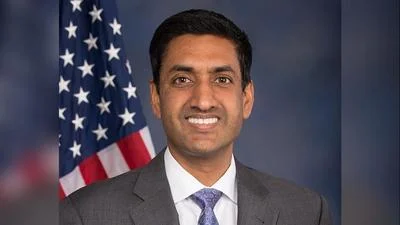John Taylor, Professor of Economics at Stanford University and developer of the "Taylor Rule" for setting interest rates | Stanford University
John Taylor, Professor of Economics at Stanford University and developer of the "Taylor Rule" for setting interest rates | Stanford University
In recent years, the intense pressure professional athletes endure has come under scrutiny, highlighted by incidents like gymnast Simone Biles withdrawing from the 2020 Tokyo Olympics and tennis player Naomi Osaka stepping back from the French Open, both citing mental health reasons.
As Biles told reporters at the time, “Whenever you get in a high-stress situation, you kind of freak out,” adding: “It just sucks when you’re fighting with your own head.”
Kelli Moran-Miller, a certified mental performance consultant at Stanford Sports Medicine and a U.S. Olympic Committee registry member, specializes in helping athletes navigate such challenges. Moran-Miller, who is also a clinical professor in psychiatry and behavioral sciences, shares strategies she uses to help athletes manage stress in high-stakes situations. Methods such as transforming critical self-talk into positive reinforcement aren’t just for Olympians but can help others in everyday high-pressure situations.
“What is the emotional journey like for athletes competing in the Olympic Games?” Moran-Miller discusses her work with elite athletes and notes that experiences vary based on factors such as whether it’s their first Olympics or if they are seeking to repeat previous successes. She emphasizes that heightened expectations and publicity magnify both successes and failures.
Moran-Miller cites Joao Felix, a Portuguese forward who missed a crucial penalty kick during the EuroCup. Despite his previous successes, this moment was disappointing. His coach commented afterward: “… only players who never shoot a penalty never miss.”
When watching the Games, it’s important to remember that even though Olympic athletes often do superhuman things, they are human beings with similar emotional experiences to everyone else. The intensity of their circumstances demands increased emotional resilience to handle victories and losses.
Moran-Miller recommends strategies for handling stress and cultivating emotional resilience among elite athletes. She helps them recognize different types of stressors they may encounter and reminds them of their existing coping strategies. Focusing on being present rather than worrying about outcomes is key.
To maintain task focus, Moran-Miller teaches strategies like focus cues or instructional self-talk to refocus attention during pressure situations. Plans for downtime and limiting distractions are also developed. Routines, self-talk, imagery, and energy management through attentional control and breathwork can increase confidence.
Focus cues direct attention to stay task-focused in the present moment. They can be verbal (“read and react”; “compete”), visual (the front of the rim on a free throw), or physical (tossing the ball for a volleyball serve). Positive self-talk enhances mood and motivation while instructional self-talk directs attention to specific tasks (“breathe, focus, go hard”; “deep breath, see the ball, trust”).
These techniques apply beyond sports; increasing self-awareness and attentional control helps manage everyday stressors effectively. Breathwork and relaxation strategies aid in staying calm during stressful moments.
Increasing resilience involves maintaining self-care foundations like sleep, exercise, nutrition for physical well-being; building authentic connections for mental well-being; practicing gratitude; pursuing meaningful activities enhances spiritual well-being.
Common misconceptions about stress include viewing it solely negatively or as weakness. While chronic stress can be problematic, it’s essential to recognize that our brain's stress response readies us for action. Athletes sometimes misinterpret healthy stress responses as detrimental instead of recognizing them as necessary energy mobilization for peak performance.
___




 Alerts Sign-up
Alerts Sign-up